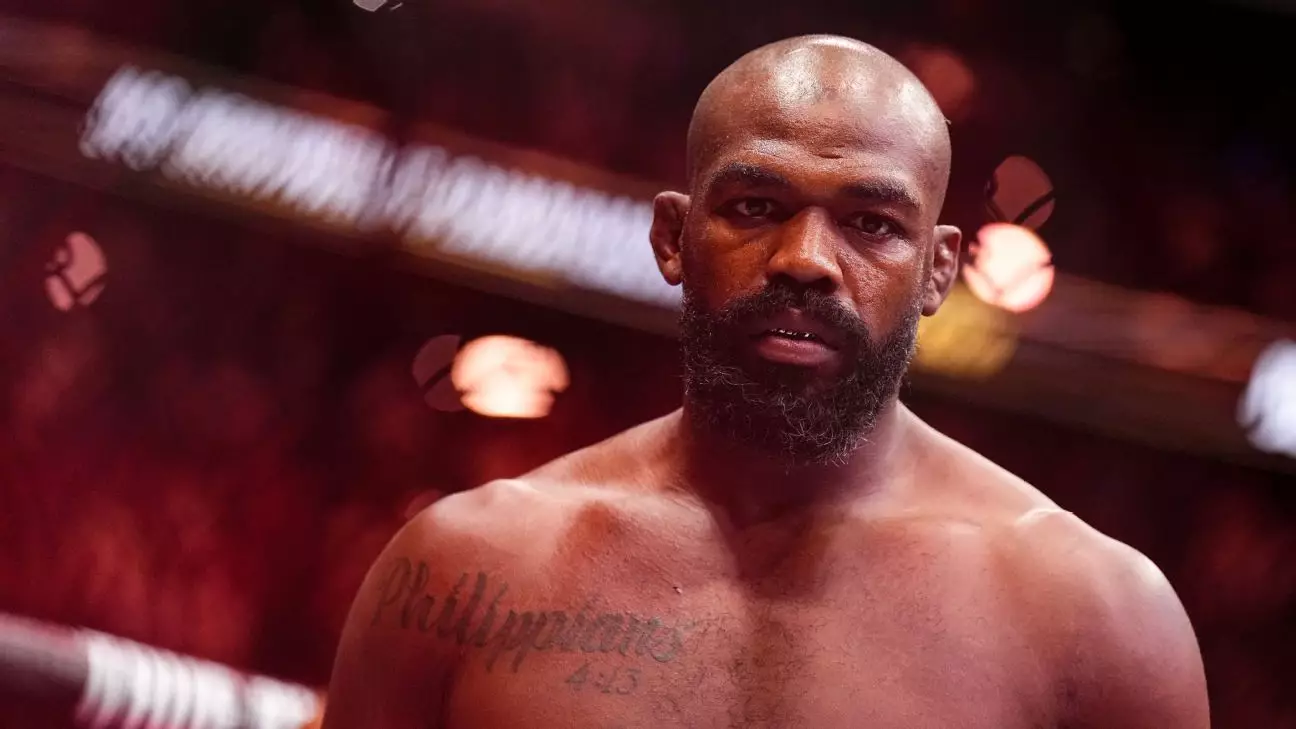The recent announcement of Jon Jones’ retirement from mixed martial arts (MMA) has sent shockwaves throughout the UFC community, but not for the reasons anyone might expect. As Dana White delivered the news during a post-fight press conference in Baku, Azerbaijan, his tone was strikingly flat—just another chapter in a saga that has consistently been marked by Jones’ self-serving tendencies. To many, the idea that the greatest fighter of all time would step away from the octagon is hard to swallow. But the real intrigue lies not in the retirement itself, but in the manner in which it was executed, leaving fans and pundits alike wondering: is this truly the end of Jones’ illustrious yet tumultuous career?
The Me-Centric Approach of Jon Jones
Jon Jones’ career has long been a study in contrasts, showcasing unparalleled athleticism and skill while simultaneously revealing an undeniable streak of selfishness that has shaped much of his narrative. For better or worse, this selfishness has propelled him to heights that few could achieve, yet it has also overshadowed the impact he has had on the sport and its community. His decision to retire has canceled exciting fights, such as the highly anticipated heavyweight title unification bout against Tom Aspinall, who many viewed as a genuine threat to Jones’ supremacy. Instead of uplifting a fellow competitor, Jones chose to combat a legacy opponent in Stipe Miocic, presumably to fortify his own historical significance rather than challenge himself against the rising stars of the division.
While some champions have stepped up on a moment’s notice to defend their titles, Jones’ cautious nature has often led him to dodge high-risk chances, opting instead for calculated gains that safeguard his undefeated streak. This behavior reinforces the perception that his career has revolved around personal agendas rather than the collective growth of the sport or its fighters. For fans, this raises legitimate questions: Does Jones care more about his legacy or the integrity of the sport itself?
The Weight of Expectations
It is hard not to view Jon Jones through a critical lens, especially considering the expectations set before him. With every highlight reel and each annointment as the “best pound-for-pound fighter,” one would think he bears the responsibility to deliver thrilling and competitive bouts that showcase not only his skills, but also uplift the sport. Instead, he has often made headlines for controversies and decisions uprooted in an ego-centric ethos that places him above the fray. White’s obvious disappointment in Jones’ latest announcement underscores a pervasive sense of letdown for fans who have followed the fighter’s journey through thick and thin, only to witness his failure to deliver outcomes that resonate with the expectations of many.
Consider the egregious historical moments in Jones’ career—his controversial leapfrog over teammate Rashad Evans to vie for the title against Shogun Rua stands as a testament to his disregard for the unwritten camaraderie and respect that often binds fighters in this brutal profession. Evans’ words about Jones being “fake” hang in the air like an unresolved ghost in Jones’ career narrative, revealing cracks in the facade that many fans have come to question with time.
The Power Dynamics of Retirement
What drives Jones, at the end of the day, seems to be an acute awareness of the power dynamics at play within the UFC. His retirement act may very well be calculated—one last strategic move to maintain control over the terms of his legacy. The moment he announced his departure, he placed himself in a position of negotiation leverage; he holds the cards now. Dan White framed the situation as if it was uncontrollable, yet the truth is that Jones has successfully manipulated circumstances to suit his whims time and again.
By retiring when it suited him, Jones ensured that when the moment arrives—whether to reclaim the belt against Aspinall or another deserving contender—he will do so on his own terms, fully cognizant of the anticipation his return will generate. If or when he decides to return, it’s likely that he’ll wield unmatched influence over what is an increasingly volatile environment where negotiation power means everything.
Jones’ actions reveal a fighter who navigates through the sport as a self-styled kingpin, unfazed by expectations or the burdens of fairness to his peers. As the world waits to see whether Jon Jones will ever step into the octagon again, one can’t help but appreciate the justifications behind his decisions. But the question remains: Is this what greatness truly looks like? For some, the answer may be a resounding yes, but for others, it’s a complex portrait blurred by the colors of ego and self-interest.

